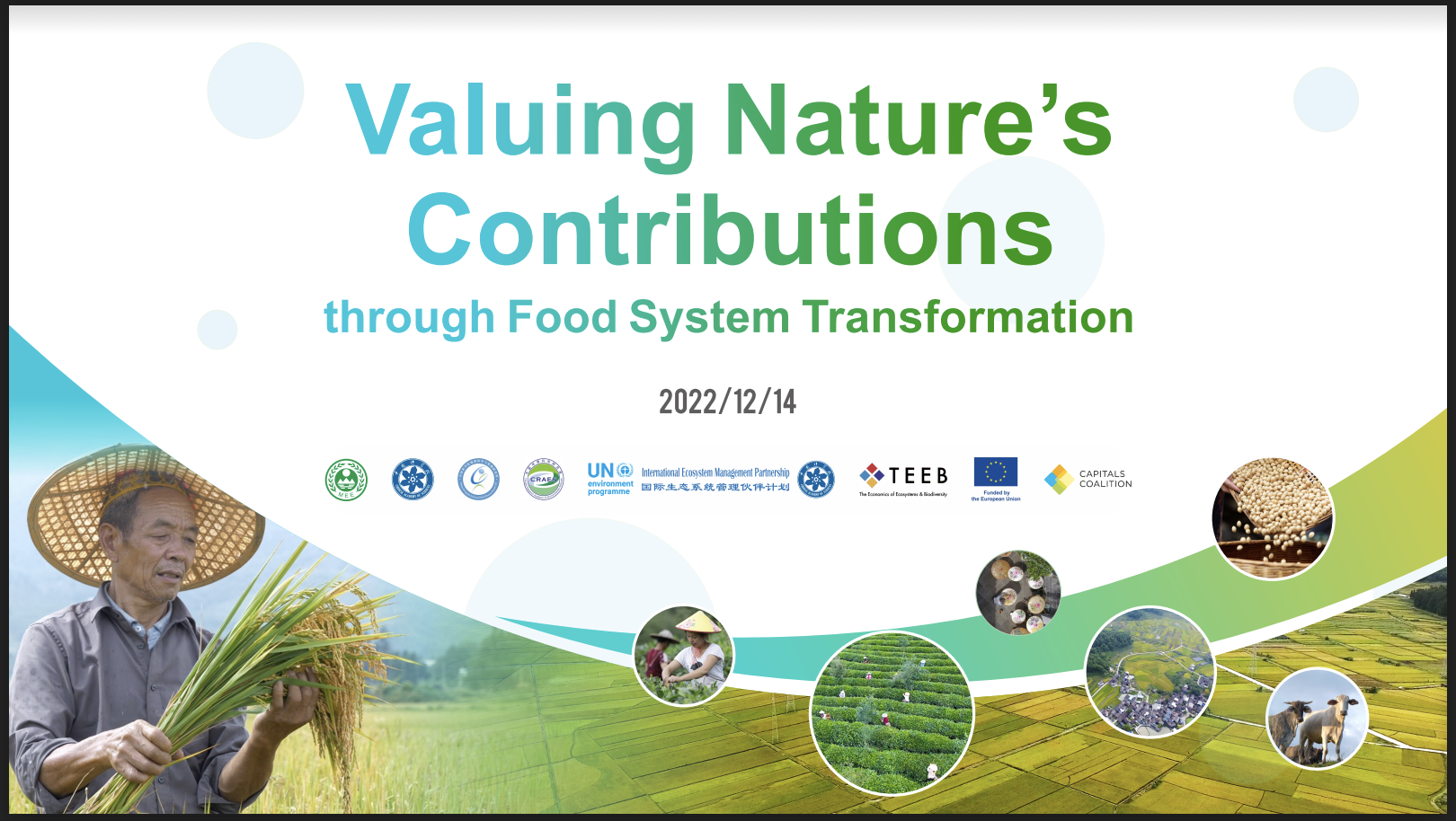
Date: Wednesday, 14 December 2022
Location: Montreal, Canada
This side event discussed how making the economic case for pro-nature policies to achieve food systems transformation is aligned with the Post-2020 Global Biodiversity Framework. It did this through the lens of the ongoing European Union funded The Economics of Ecosystems and Biodiversity for Agriculture and Food (TEEBAgriFood) application in China and six other countries (Brazil, India, Indonesia, Malaysia, Mexico, and Thailand).
There are myriad positive and negative impacts and dependencies within food systems that routinely and systematically are neither recognized nor captured in decision-making, and yet they impact on nature, biodiversity, ecosystems, and their ability to sustain livelihoods. By evaluating and then valuing these impacts and dependencies an economic case can be made for pro-nature policy interventions.
TEEB is a UNEP-hosted global initiative launched at the G8+5 Potsdam Meeting of Environment Ministers in 2007. TEEB is an important partner in implementing the CBD programme of work on incentive measures and in particular its work on valuation. The TEEB approach focuses on the use of economic valuation to inform policies for the conservation, restoration, sustainable use, and management of nature’s contribution to people.
Publications
- Concept note
- Flyer
- Social media card
- Speaker bios
- Outcome document
- Visual summary
- Recording
- Remarks by Minister Huang, Minister of Ecology and Environment China, President of COP 15
Press clippings
- https://yn.chinadaily.com.cn/a/202212/17/WS639d14b5a3102ada8b227122.html
- https://www.chinanews.com.cn/gn/2022/12-15/9915306.shtml
- https://m.thepaper.cn/newsDetail_forward_21225124
- https://news.sina.com.cn/sx/2022-12-19/detail-imxxepne3913345.shtml
- https://news.sciencenet.cn/htmlnews/2022/12/491167.shtm
- http://www.eedu.org.cn/news/envir/homenews/202212/108599.html
- https://www.eco.gov.cn/index.php/news_info/60726.html
- https://k.sina.cn/article_1784473157_6a5ce64502002nggd.html?from=news&subch=onews
- https://ishare.ifeng.com/c/s/v002c--pQC4hxeHgjpf5vlpXdYOKE7ONRpyXAvCZhTglPHz0__
Organized by: - United Nations Environment Programme (UNEP) - Ministry of Ecology and Environment, China (MEE China) - Chinese Academy of Sciences (CAS) - The European Union (EU) - United Nations Environment Programme-International Ecosystem Management Partnership (UNEP-IEMP) - Chinese Research Academy of Environmental Sciences (CRAES) - Capitals Coalition
